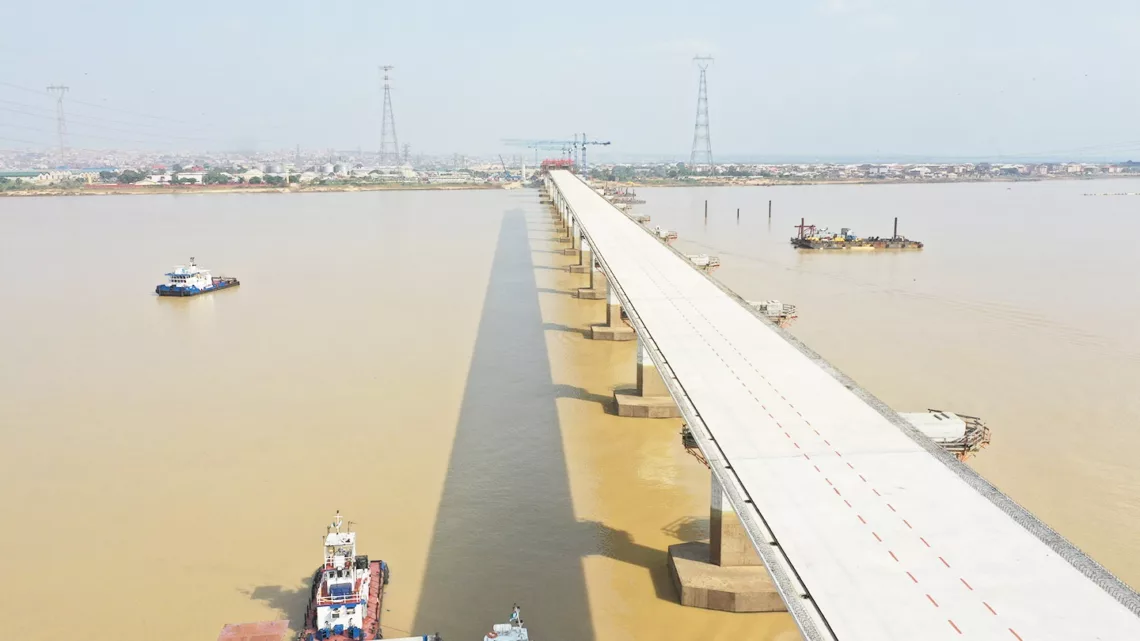Recently, the federal minister of works and housing, Babatunde Raji Fashola, announced to the public that the long awaited Second Niger Bridge had been 100 per cent completed. Among other things, the completion of the project inspires joy that decades of delay in completing the bridge constituted an albatross to economic activities in one of the most economically vibrant regions of the country.
Symbolically, the 2nd Niger Bridge dispels what is by attrition becoming a tradition of abandoned projects. And it will go down in history to the credit of President Buhari, who has stuck to his promise of completing the bridge.
Among the many infrastructural developmental projects currently being undertaken by the federal government, the Second Niger Bridge was arguably one of the most strategic for the advancement of economic growth.
The Second Niger Bridge is a key national infrastructure, with immense socio-economic benefits for the contiguous states and indeed the entire nation.
What is left to be worked on at the moment that is hampering the free movement of passengers and goods is a link road to the bridge. That is being hampered by the current national flood disaster.
Upon completion of that link road, the bridge will ease traffic flow, improve road safety, and create greater opportunities for local residents by advancing the commercial viability of the immediate area and regenerating economic life.
The scope of work includes the construction of a 1.6 km long bridge, 10.3 km highway, Owerri interchange and a toll station.
As laudable as the project is, it is worthy of note that this project has been mulled for more than 30 years by successive governments.
The project was first proposed during the 1978/79 political campaign by then candidate Shehu Shagari of the National Party of Nigeria (NPN).
Then in 1987, after warning about the state of the existing River Niger Bridge by the then minister for Works and Housing, Abubakar Umar, General Ibrahim Babangida challenged the local engineers to design the Second Niger Bridge.Rising to the challenge, the Nigerian Society of Engineers (NSE) Prems Limited subsequently delivered a master plan. Then there was the addition of the East–West Railway Line to the project. Unfortunately, the turmoil that precipitated the end of Babangida’s administration stalled the plan.
Under the subsequent military governments, the project received little attention. Upon the return to civilian rule, President Olusegun Obasanjo promised to deliver a second Niger River bridge. However, his administration did not carry out any major activity on the project until five days before he handed it over to the then incoming administration of Umaru Musa Yar’Adua, when Obasanjo flagged off the project in Asaba.
The incoming administration effectively inherited a N58.6 billion proposed cost for a six lane, 1.8 km tolled bridge, which was to be completed in three-and-half years. The bridge was to be financed under a public private partnership (PPP) with 60 per cent of the funding coming from the contractor, Gitto Group; 20 per cent from the Federal Government of Nigeria, and 10 per cent from the Anambra and Delta State governments. Unfortunately, the subsequent death of President Yar’adua marred the progress of the project.
However, in August 2012, the Federal Executive Council (FEC) under President Goodluck Jonathan’s administration approved a contract worth N325 million for the final planning and design of the bridge. During the 2011 Nigerian general election campaign period, Jonathan promised that if elected, he would deliver the project before the end of his term in 2015. At an Onitsha town hall meeting on August 30, 2012, he promised to go into exile if he did not deliver on the project by 2015.
The rigmarole continued under the President Muhammadu Buhari administration, who first cancelled the earlier contract in August 2015.
The current administration has no doubt put the project on the front burner that the project is 100 per cent completed. The uncompleted link road is all that is left to make the 2nd Niger Bridge fully operational to meet its full economic potential.
No doubt, the project will ease the movement of people and goods in the contiguous states, which has the propensity of buoying economic activities in the region.
Considering the fact that the idea of a Second Niger Bridge was first mulled in 1978, President Buhari has doubtless created a legacy for himself.
In the interest of the masses, it is incumbent on the federal and state governments to be most impacted by the completion of the Second Niger Bridge to galvanise all of their resources to ensure that that laudable project is realised by completing the link road when the floods finally recede.





